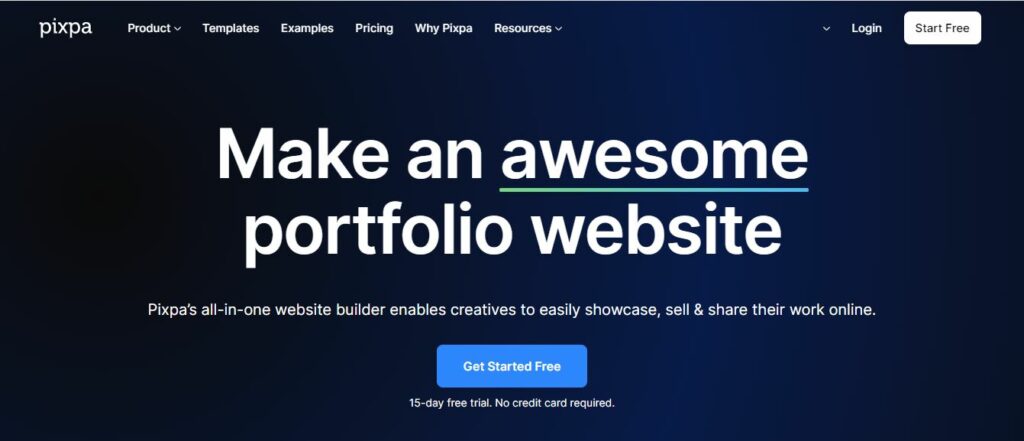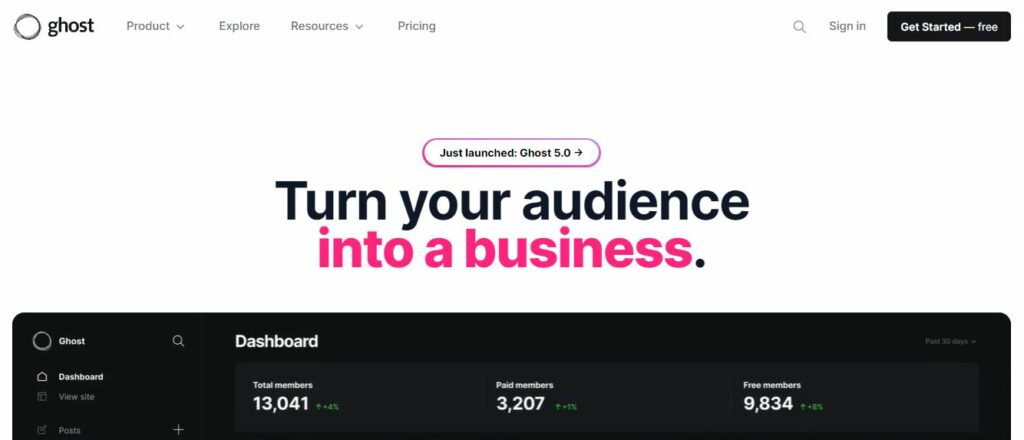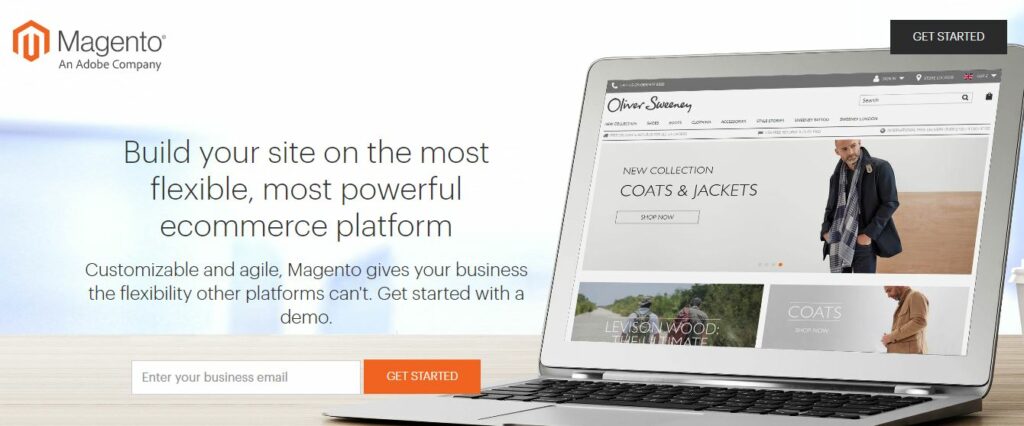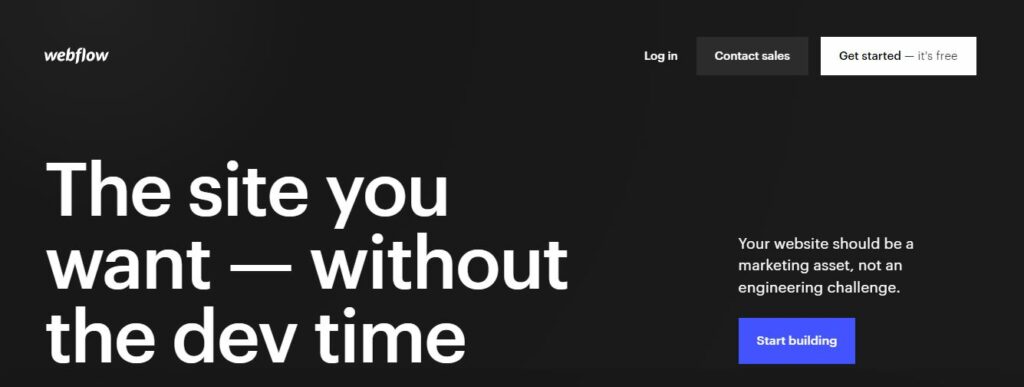If you’re looking to build a website in 2023, there’s no doubt that WordPress is still one of the most popular and powerful tools available. It offers functionality and flexibility like no other platform, and its easy-to-use templates, and plugins make it quick and simple for anyone to create a stunning site.
But with so many other great options out there, what are the best alternatives?
Here are the Top 9 WordPress Alternatives in 2023:
Wix

Wix is a cloud based web development platform that allows users to create and manage their own websites without the need for coding knowledge. With a user-friendly interface and a variety of customizable templates, Wix makes it easy for anyone to create professional-looking websites.
Additionally, Wix offers a range of features including e-commerce capabilities, SEO tools, and social media integration. With Wix, users can create online portfolios, business websites, and personal blogs with ease. The platform also offers hosting and domain services, making it a one-stop-shop for all things web development.
Pros
- Great for beginners to quickly build a website.
- Offers an app store with integrations from CRMs and other software.
- Includes drag and drop website building tools with a wide range of ready-made templates.
- Affordable monthly plans for the basics.
Cons
- Lack of integration options outside those offered in the App Store.
- Not as customizable as other web hosting platforms, such as WordPress or Squarespace.
- With free plans, domain names include “wix” in them, which isn’t ideal for branding purposes.
- Complexity increases as you add more features or pages to your sit
Squarespace

Squarespace is a website building and hosting platform that allows users to easily create and manage professional-looking websites. It offers a wide range of customizable templates and design options, as well as features such as e-commerce integration and SEO tools.
Squarespace is known for its user-friendly interface and intuitive drag-and-drop editor, making it a popular choice for small businesses and individuals looking to create a polished online presence. The platform also offers 24/7 customer support and a variety of pricing plans to suit different needs and budgets.
Pros
- Easy-to-use interface and drag-and-drop feature to customize website designs.
- Offers great customer support, with 24/7 phone, email, and chat options.
- Comprehensive range of templates to choose from and easy integration with third-party apps.
- Reliable hosting, site speed, and security features provided.
Cons
- Limited payment gateways available for ecommerce sites.
- No access to source code or ability to modify HTML/CSS code.
- Lack of certain customization options compared to other website builders.
- Monthly subscription fees may be expensive for some users.
Pixpa
Pixpa is a website builder that allows users to create professional and customizable websites without the need for any coding knowledge. With Pixpa, users can easily drag and drop elements to create their desired layout, and choose from a variety of templates and designs to suit their needs.
Additionally, Pixpa offers features such as e-commerce functionality, client galleries, and SEO tools to help users grow their online presence. Overall, Pixpa is a powerful and user-friendly platform for creating beautiful and effective websites.

Pros
- Superb customer support with fast response time.
- Intuitive and easy to navigate user interface.
- Variety of design themes suitable for any type of project.
- Comprehensive ecommerce functionality allows users to create online stores quickly and easily.
- Flexible pricing plans for different types of users and their needs.
Cons
- Some features are lacking, such as advanced analytics or SEO optimization tools.
- Limited payment options for customers purchasing from online stores created through Pixpa.
- Design customization options are limited compared to other website building platforms.
Weebly
Another website builder that’s on the rise is Weebly, which offers an easy-to-use interface and plenty of functionality for creating sophisticated sites without having to know any coding.
Its user-friendly drag-and-drop system makes it simple to quickly create layouts and add content, plus it provides access to a large selection of free and premium templates.

Pros
- Easy to use drag and drop interface for website creation
- Wide range of templates for multiple industries
- Integrates with ecommerce tools like PayPal and Stripe
- Site SEO optimization tools built-in
- Pro plan offers custom domains, website analytics, site search & SSL security certificates
Cons
- Lack of third-party support or plugins available compared to other platforms
- Not all features are included in the free version – requires a subscription for additional features/controls
- Limited customization options beyond basic HTML/CSS editing on higher plans
- No phone support – only email & live chat
Shopify
Shopify is a leading e-commerce platform that allows businesses to easily create and manage their online stores. With its intuitive drag-and-drop interface, merchants can easily design their store, add products, process payments, and manage orders and shipments.
Shopify offers a wide range of features and tools, including customizable themes, integrated marketing and sales tools, and a powerful app store. Shopify also offers 24/7 support, making it a popular choice among small and medium-sized businesses. In addition to its e-commerce capabilities, Shopify also offers point-of-sale solutions for brick-and-mortar stores.

Pros
- Comprehensive e-commerce platform with extensive features.
- Easy to use interface with intuitive navigation.
- Mobile-friendly site design for enhanced customer experience.
- Secure payment gateway with fraud protection.
- Flexible plans offering options to suit a variety of business needs.
Cons
- Relatively expensive, especially as the business grows and needs more sophisticated features.
- Third-party integrations can be unstable and unreliable at times.
- Can be challenging to set up online stores without technical knowledge or help from experts.
Ghost
Ghost is a popular website builder that allows users to create professional and sleek websites with ease. Its user-friendly interface and drag-and-drop editor make it easy for anyone to design and customize their website without the need for any coding knowledge.
Ghost also offers a variety of pre-designed templates to choose from, allowing users to create a unique and personalized website in minutes. Additionally, Ghost offers powerful publishing tools, allowing users to easily manage their content and blog posts. Its focus on simplicity and user experience make it a popular choice among bloggers, businesses, and individuals looking to create a professional online presence.

Pros
- Easy to use and no coding required.
- Provides a library of professional-looking templates.
- Hosting is included in pricing, making it simple to get started.
- Offers powerful tools that allow you to customize your website quickly and easily.
- Shopping cart integration makes it easy to start selling online.
Cons:
- Limited customization options if compared with other website builders.
- Users are not provided access to the underlying code
- Themes cannot be modified significantly, only minor design tweaks can be made.
- Not suitable for large websites
Magento
Magento, now known as Adobe Commerce is a popular open-source e-commerce platform used by businesses of all sizes. It offers a wide range of features and tools to help merchants create, manage, and grow their online stores.
With its user-friendly interface and customizable features, Magento allows businesses to create unique and engaging shopping experiences for their customers. It offers support for multiple languages and currencies, as well as a range of payment and shipping options.
Additionally, Magento provides powerful marketing and analytics tools to help merchants optimize their online store and increase sales. Overall, Magento is a versatile and powerful platform that is well-suited for businesses looking to succeed in the world of online commerce

Pros
- Easy to use drag and drop feature for custom website design.
- Customizable with hundreds of themes, plugins and integrations.
- Allows for quick modifications without having to code.
- Scalable platform for large enterprise eCommerce businesses.
- Advanced security features help protect sensitive customer data.
Cons
- Pricey compared to other website builders, especially for the Enterprise Edition.
- Requires an extensive learning curve to get the most out of the platform.
- Limited flexibility when it comes to creating highly customized solutions.
- May not be ideal for small businesses or those on a tight budget
Webflow
Webflow is a powerful web design and development platform that allows users to create and manage professional websites without needing to know any code. With its intuitive drag-and-drop interface and robust design tools, Webflow makes it easy for anyone to create stunning, responsive websites that look great on any device.
One of the key features of Webflow is its flexibility. Users can create custom websites from scratch, or choose from a wide range of templates and pre-designed elements to speed up the design process. Additionally, Webflow’s visual editor allows users to see their designs in real-time, making it easy to make changes and iterate on ideas.

Pros
- Flexibility to customize design with HTML/CSS code.
- Easily add interactivity with animations, forms and videos.
- Responsive design for desktop, tablet and mobile devices.
- Built-in SEO features such as sitemap creation, meta tags, and more.
- Variety of quality templates to choose from.
Cons
- Limited hosting options compared to other site builders.
- No eCommerce capabilities without additional premium plan.
- Certain templates don’t display properly on certain browsers (IE6).
- Setting up a blog can be challenging without knowledge of HTML/CSS.
Portfoliobox
Portfoliobox is a digital platform that allows users to create and manage their own online portfolios. With a user-friendly interface and a range of customizable templates, Portfoliobox makes it easy for creatives, artists, and professionals to showcase their work and skills to the world.
Portfoliobox offers a variety of features, including the ability to upload and organize images, videos, and other multimedia content, as well as the ability to add text and links to external websites. Users can also choose from a range of customizable themes and design elements to create a unique and professional-looking portfolio.

Pros
- User friendly interface and easy setup.
- Responsive design fits any device automatically.
- Highly secure hosting with SSL encryption.
- Professional designs with customizable features.
- Offers tracking tools to analyze website traffic and measure performance.
Cons
- Limited number of templates and design options available.
- Lack of advanced features such as an eCommerce store or blog capabilities.
- Limited customer support options, only email and phone support are available.
Conclusion
There are plenty of great alternatives to WordPress out there in 2023, and these nine are just the tip of the iceberg. Ultimately, the decision of which platform to use will depend on your specific goals and requirements. But with its versatility and flexibility, WordPress remains a strong contender in the world of website and blog creation. So don’t be afraid to explore all your options.






